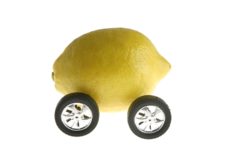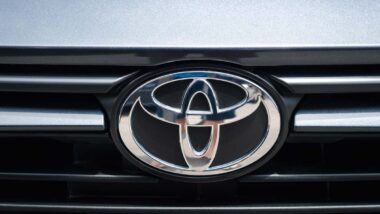Top Class Actions’s website and social media posts use affiliate links. If you make a purchase using such links, we may receive a commission, but it will not result in any additional charges to you. Please review our Affiliate Link Disclosure for more information.
Nobody likes car problems, especially when they seem to keep happening over the same issue that just isn’t getting fixed. These kinds of car problems are at the very least inconvenient and aggravating, but they may also be financially unsustainable or even downright dangerous. However, cars do not need to be severely breaking down in order to be considered lemons. The California lemon law may cover your new vehicle if you have made numerous attempts to fix a problem that remains unresolved.
California’s lemon law falls under the provisions of the Song-Beverly Consumer Warranty Act, which was passed in 1970 to require manufacturers to repurchase or replace defective products after a “reasonable number” of failed repair attempts. The Song-Beverly Act applies to many consumer goods and not only to vehicles.
Lemon laws are meant to protect consumers from the cost of repeated repairs on new vehicles. Lemon laws are state, rather than federal, regulations, and they vary from state to state. While different states have different lemon laws requirements, the gist is the same: auto manufacturers are required to repurchase a new vehicle if it is shown to have a serious defect and can’t be repaired by the manufacturer within a given period of time.
The California lemon law applies to vehicles that are presumed to be “lemons” based on certain criteria. A passenger automobile is considered a lemon (otherwise known as a “dud”) if the following circumstances are met within 18 months of delivery to the buyer or lessee, or before there are 18,000 miles on the odometer, whichever comes first; and one or more of the following happens:
- The vehicle’s manufacturer (or its agents, such as an authorized dealership) have attempted twice or more to fix a warranty issue that causes a risk of death or serious injury if the vehicle is driven; or
- The manufacturer (or its agents, such as an authorized dealership) has made at least four attempts to fix the identical problem covered by the warranty. The consumer must notify the manufacturer about the issue, preferably in writing, if such notification is required by the owner’s manual or by the automobile’s warranty paperwork. The consumer must send the notification as directed to the address provided with the warranty information in both cases 1 and 2; or
- The vehicle has been unavailable for use by the consumer for more than 30 days total because it’s in the shop being repaired for warranty-covered problems. The issues must substantially reduce the use, value, or safety of the vehicle and not be caused by any abuse of the automobile. (The 30 days of out-of-service for repairs does not have to be 30 consecutive days.)
Both new and used vehicles are covered under California lemon law, according to the California Department of Consumer Affairs. Consumer cars, pickup trucks, vans, and SUVs are all covered, along with certain parts of a motorhome, dealer-owned vehicles or demonstrators, and business vehicles.
Once the consumer shows that California lemon law criteria have been met, the consumer should be provided with a replacement vehicle or a refund of the full purchase price. In some cases, the manufacturer may argue that the issues are negligible or were caused by the consumer, which would mean the consumer is not entitled to a replacement automobile or refund.
In many cases, contested lemon law claims will go through an arbitration program. This program may be conducted via the vehicle manufacturer or through California’s own Arbitration Certification Program (ACP).
“The ACP’s mission is to protect California’s new car owners by ensuring that California state-certified arbitration programs provide a fair and expeditious process to resolve Lemon Law disputes,” the Department of Consumer Affairs’ Lemon Law guide notes.
All arbitration programs certified by California are required to meet several deadlines. Claims must be processed with 40 days, although this can be extended by up to 30 days for additional information requests, technical inspections by the arbitrator, or for other reasons.
Within 30 days of a decision being made by the arbitrator, the manufacturer is required to abide by the terms of the agreement. This may include providing a replacement, making additional repairs, providing a refund, or reimbursing certain costs such as towing or car rentals. Like the decision-making deadline, this deadline may be extended or delayed for reasons beyond the manufacturers’ control.
A lemon law lawyer can help ensure the consumer has an ironclad case. Although a lawyer is not required to take action under the lemon law in California, an experienced legal professional can help consumers compile documentation for the arbitration process, argue their case, and even take further action if arbitration proves unsuccessful.
 Using the California lemon law
Using the California lemon law
The best way to make sure the lemon law covers your vehicle is by keeping immaculate records of all work done. These records can include everything from service records to communications with your dealer/manufacturer to phone records, or anything else that might show your vehicle is a qualifying lemon. The vehicle’s mileage, the dates work is performed and a record of when the warranty problem reappeared will help provide evidence that your automobile is covered by the lemon law. The first time you notice a problem, you’re not going to expect that same issue to continue to haunt you after you take the vehicle to the dealership to fix it, so start keeping records the moment you detect an issue.
In addition to the purchase price and collateral charges, such as sales tax and license and registration fees, the manufacturer of the lemon can be held responsible for incidental damages. Reasonable costs of repairs, towing and rental car costs that the consumer actually incurred may be entitled to reimbursement by the manufacturer, as are prepayment penalties and other such charges the consumer may have paid or be required to pay.
If you live in California and believe your vehicle may qualify as a lemon, after several attempts to fix a defect, you may have legal recourse under California lemon law.
Navigating lemon laws can be a complicated process, and dealing with an auto manufacturer or dealership can be stressful, but consulting an attorney can help. Top Class Actions can connect you with an experienced attorney who can help you determine if you have a claim and navigate the complexities of California lemon law. You might be eligible to take part in a class action lawsuit.
Join a free lemon law defective vehicle investigation
If you have a defective vehicle that is under warranty and is still not fixed after multiple attempts, you may qualify for help under your state’s Lemon Law.
(Note: Residents of North Carolina do not qualify for this investigation.)
Learn more by filling out the form on this page for a free case evaluation by experienced Lemon Law attorneys or call (877) 289-0615.
ATTORNEY ADVERTISING
Top Class Actions is a Proud Member of the American Bar Association
LEGAL INFORMATION IS NOT LEGAL ADVICE
Top Class Actions Legal Statement
©2008 – 2024 Top Class Actions® LLC
Various Trademarks held by their respective owners
This website is not intended for viewing or usage by European Union citizens.
Get Help – It’s Free
Join a Free Lemon Law Defective Vehicle Investigation
If you qualify, an attorney will contact you to discuss the details of your potential case at no charge to you.
PLEASE NOTE: If you want to participate in this investigation, it is imperative that you reply to the law firm if they call or email you. Failing to do so may result in you not getting signed up as a client or getting you dropped as a client.
Oops! We could not locate your form.


 Using the California lemon law
Using the California lemon law










